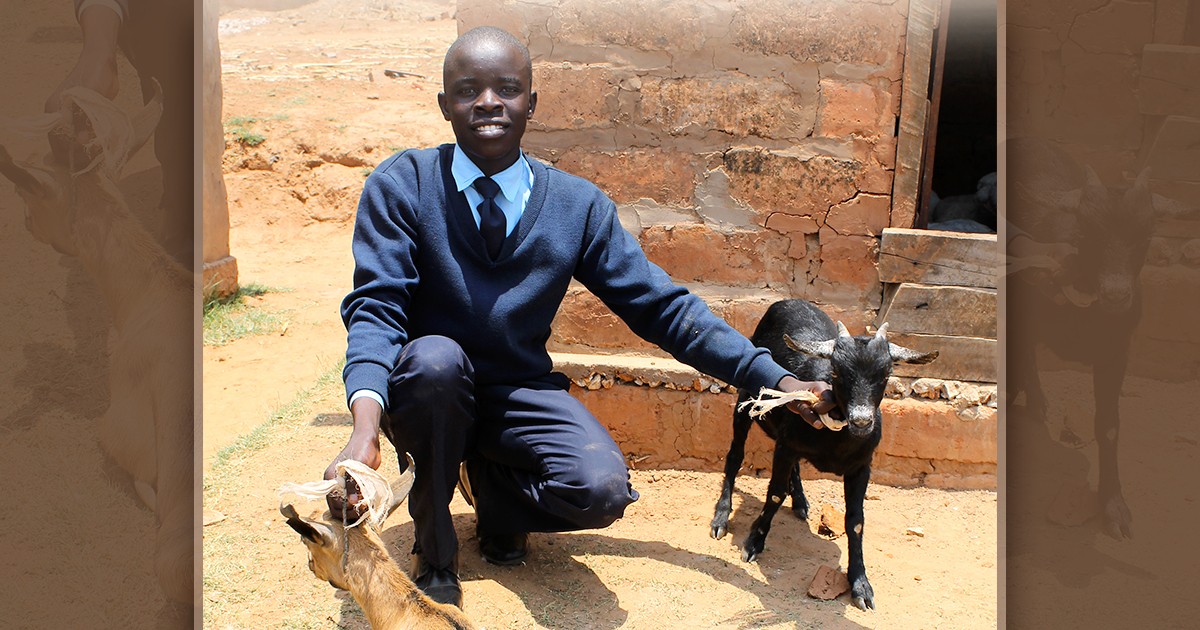 When Lesslie Newbigin, a bishop in the Methodist church, returned to England from missionary service in India, he discovered to his surprise that England itself had become a mission field. In an article, “Can the West be Converted?” he wrote about his incredible sense that the Church had become too much like the culture around it. His observations are an indictment on the Church in North America today. We are so much like our culture that we can no longer recognize who we are.
When Lesslie Newbigin, a bishop in the Methodist church, returned to England from missionary service in India, he discovered to his surprise that England itself had become a mission field. In an article, “Can the West be Converted?” he wrote about his incredible sense that the Church had become too much like the culture around it. His observations are an indictment on the Church in North America today. We are so much like our culture that we can no longer recognize who we are.
Newbigin noted that it isn't enough to understand culture and then shape your mission and ministry to it. You must first be shaped by the Gospel. You must ask: “What does it mean to be a gospel community in our culture?” In his book Foolishness to the Greeks, Newbiggin calls the Church the “heretical imperative”―it stands in the midst of the community and says: “We are for you and our values are shaped by the Gospel.”
Theology of Place
When they were in exile in Babylon, the Israelites lamented: “How can we sing the songs of the Lord while in a foreign land?” (Psalms 137:4). God's response in Jeremiah 29:4 suggests he himself sent his people into exile from Jerusalem to Babylon: “This is what the Lord Almighty, the God of Israel, says to all those I carried into exile from Jerusalem to Babylon.” The waning influence of the Church in modern culture can also be seen as a form of exile. Our cities may seem like a foreign land in comparison to the places where we grew up. But how do we help our churches understand that it is God who put us here, in this time and place? The community around us may have changed, but this is where God has intentionally placed us.
In verses 5-6, God says to the exiles: “Build houses and settle down; plant gardens and eat what they produce. Marry and have sons and daughters … Increase in number there; do not decrease.” In other words, grow. Don't just hang in. If you believe things can things can change, then grow. Do new things, creative things. The only way to multiply is to take risks. Think of what a risk the Israelites take in this passage. Verse 7 says: “Seek the peace and prosperity of the city to which I have carried you into exile. Pray to the Lord for it, because if it prospers, you too will prosper.”
You have to be in it for the long haul, walking with people and acknowledging that some parts of their life are in order and other parts of their life are in transformation
Why do we participate in the Shaloming of the city? Why do we, as the Church, come to be salt and light? For its welfare. If you want to make a better downtown, then live in it. Do you want to make Babylon better? Then seek its welfare. By doing so, you create a better place for yourself and your neighbours. That's what it means to have a theology of place.
Flexible Structures
People who work with the poor often tend to lose their spirituality. They spend all of their time caring for the poor and advocating for the powerless. They forget that their strength is supposed to come from somewhere other than themselves. Sometimes inner-city workers are the most burned out people that you can meet because they've lost the foundational spirituality that makes ministry possible. Many pastors just go through the motions because they have lost the reason why they are doing what they are doing.
When I came to work for Canadian Baptist Ministries, the first thing I told them was that I have an absolute commitment to the mission, but I have absolutely no commitment to the survival to the organization. If there is something in the structures that is causing a block in our ability to make mission possible, then we must do away with the structure. There is nothing sacred about these structures; they are not God ordained, just contextual expressions of a particular time. The problem comes when the structures become the things that give meaning.
Flexible structures help us jettison things that don't make sense anymore. When my former church, First Baptist, started to turn around we had many young singles and couples with no kids. We started a Thursday evening service, a running club and a baseball team to help develop community. When the young couples started having kids, they couldn't come to the Thursday night service. They didn't have the time for the baseball team. After three years, it was difficult for some people to let these activities go―they had become tradition. Instead of trying to breathe life back into the old schedule, we decided to try something new. It was the smartest thing we ever did.
Flexible structures helped us retain young people. The next generation is one of the most exciting generations to come into the Church in years. They want to change the world. They won't settle for the picket fence. Their dream is to do something important. They know that things have to change fundamentally, so they choose to live differently. We have to tap into this generation and help them focus their commitments.
Journey
We are living in a time in which journey is the framework that makes sense. The transformation in people's lives doesn't happen overnight―you have to be in it for the long haul, walking with people and acknowledging that some parts of their life are in order and other parts of their life are in transformation. The journey is a process that is less about position and more about direction. Personally, I don't care where you are in your spiritual journey. All I want to know is: Are you moving in the right direction?
Transformational Questions
• Why do we exist as a church? (Biblical Purpose)
• How has God worked in our past? (Ministry Milestones)
• Whom has God called us to reach? (Ministry Focus)
• What is God shaping us to be? (Core Values)
• Where is God leading us in the future? (Ministry Model)
• How will we accomplish our vision? (Goals)
• What is our Plan for Ministry for the next five years? (Ministry Plan)
That's an upside down framework for most of us. We were raised to think of people who are either “in” or “out” of the Church. If you were in, you were good. If you were out, you were bad. The problem is that all of us have met some really bad people in the church, as well as people outside of the church that were a lot nicer than we expected. As soon as you discover this, it's like a house of cards― pull that bottom card out and the whole premise comes tumbling down.
The Christian faith is more like an amorphous amoeba in which the journey motif is toward the centre. The nucleus is Jesus. It is possible to be inside the amoeba and to be moving away from Jesus. It is also possible to be outside of the Kingdom and actually be closer to Jesus than some people who are inside. Working under a transformational model means that there is a dialogue going on all the time in the pastorate that recognizes where people are in the journey. I can live with anyone, in any place, if I know they are walking toward the centre.
The adventure of the pastoral work is walking with those people in the journey. Every conversation is an adventure because you are now a spiritual director, not just a chaplain. The image of a pastor for the 21st century is what I call the pastor-theologian-missionary. If we are trying to form leaders, pastors and theologians, then you have to encourage them to think for themselves. In this kind of model you don't just have theology, you do theology. You must be sitting down with people and doing theology all the time.
It's easy to have a nice, neatly packaged stance on homosexuality, until a person sits down with you and tells you he's gay. That happened in my church. This individual was one of the most conservative Christian in our church, and he had a theology degree to boot. He told me: “I have been prayed over and had demons cast out of me and I have struggled with my sexual orientation my whole life and I need to tell you, at 45, I can't hide this anymore and I'm coming out of the closet.”
Now I have a name and a face. This is not some “love-the-sinner-hate-the-sin” evangelical concept. How do I hold to what I believe is biblical and at the same time be compassionate and understanding? Can you imagine what it was like for this man? For 45 years, he struggled with this and hid it from friends and family. Can you understand why he might want to come out of the closet? Now, the question is: How do I walk with him though this difficult time? That part is the pastor-theologian tension. How I speak the truth of Gospel into his life is the missionary part of my understanding of leadership.
Mission and People
We need to develop a theology of mission that identifies with people. In 1 Thessalonians 2:8, Paul says: “We love you so much that we were delighted to share with you not only the Gospel of God but our lives as well, because you had become so dear to us.” Martin Luther King said: “Whom you would change, you must first love.” The Apostle Paul didn't just give the Thessalonians words, he cared about them―they became dear to him. Every church I left was a painful experience because of the closeness I shared with the members of the congregation. Someone once told me I could never have friends in my church because people would think I was playing favourites. But Jesus had favourites. John was the disciple Jesus loved. He had a special place for John in his heart and everyone else knew it.
Community Questions
• What are the issues in my community?
• Who are the people that make up this community?
• How has it changed in the last 10 years?
• Does our church represent the demographic make up of our community? Why not?
• What are the rhythms of this community?
• How do things get communicated? When? Where?
• What needs could we fill as “ports of entry”?
• What would the Good News be to people in this community?
That doesn't mean that you don't love the unlovable in your church either. You may need the ones that are special to you to survive, but that doesn't mean you don't love and care for the other people God has put in your life.
Above all, pastors must be transparent to the people in their congregations. Paul writes: “You know we never use flattery nor did we put on a mask to cover up greed―God is our witness” (1 Thessalonians 2:5). It's like saying we didn't live in the shadows.
Many pastoral leaders are struggling because they have hidden lives. One of my friends, who pastured a large church, phoned me one day and informed me he was resigning. He had been involved in sexual situations with a number of women in the church. He chose to live a hidden life. I think hiddenness is one of the greatest sins in the church today. Paul says: “What you see is what you get with me. I didn't live in the shadows.” When you live in hiddenness you are always afraid you will be discovered.
In verse 6, Paul says: “We were not looking for praise from men, not from you or anyone else.” It wasn't about power for Paul. If you get into positions of influence, hold them loosely. When you live for power you are never prophetic enough to take the risks. Mary Jo Leddy, director of Romero House in Toronto, says the future belongs to those who have nothing to lose. For example, I think about the suicide bombers in the Middle East who walk in to a Jerusalem café and blow themselves up. As tragic and misguided as that may be, those people are committed to something enough that they are willing to sacrifice their lives. We cannot counteract that kind of religious fanaticism with a nominal, pasteurized, unedged faith. As Christians, we must be willing to make sacrifices for the cause of peace.
Mustard Seed Mindset
We need to develop a mustard seed mindset. Evangelicals today are in love with the home run. We want to pack a football stadium full of people―the more the merrier. We want to march for Jesus, and next year we want to march more people for Jesus. We want to up link prayer into a satellite and have people all across Canada meet in stadiums for prayer. I'm not trying to put these things down, but we forget that it's the one-to-one relationships where people get changed. One person at a time. We need to rediscover the “bite size chunk” of ministry.
Someone once phoned me from an organization and said: “We have a campaign in the city for evangelism. We want you to take on this area and give out videos.” I said, “No, that doesn't fit our strategy. Now if you would sell us some of those videos we'll give them to our non-Christian friends.” She countered: “But the rest of the city is doing it. Don't you believe in evangelism?” “Yes, we do,” I said. “But we've committed ourselves to witnessing through friendship evangelism. Your strategy is wonderful, but it just doesn't fit with ours.” She didn't understand.
We have this desperate need for people to join in with what we are doing. Take a crusade, for example. Most studies show that crusades (with the exception of Billy Graham and crusades in Latin America) are ineffective. In most places the energy that it takes to create the infrastructures for these crusades actually detracts from the evangelizing.
The beauty of a discipleship program like Alpha, on the other hand, is its simplicity and its community focus. Alpha's philosophy is: “Deal with your mustard seed relationships, invite your friends, let's have dinner let's hang out and talk about God.”
I always worry when mustard seeds are never satisfied with being mustard seeds.
Prayer Framework
The last step is to develop a prayer framework. Each of Paul's letters begins with a prayer for that particular church. It's amazing. Prayer bathes everything. It's not enough to live in the community; you have to pray over it. Prayer walks, prayer groups, some churches have started prayer meetings again. Jim Cymbala, pastor of Brooklyn Tabernacle, started a prayer meeting and now 4,000 people come to it.
I discovered that I'm not good at prayer on my own, but if I pray with a group of people it holds me accountable. That doesn't mean I shouldn't learn how to pray, but some of us pray better with other people. And when we get together and pray, God does wonderful things. Prayer is the foundation for renewal.









Leave a Comment